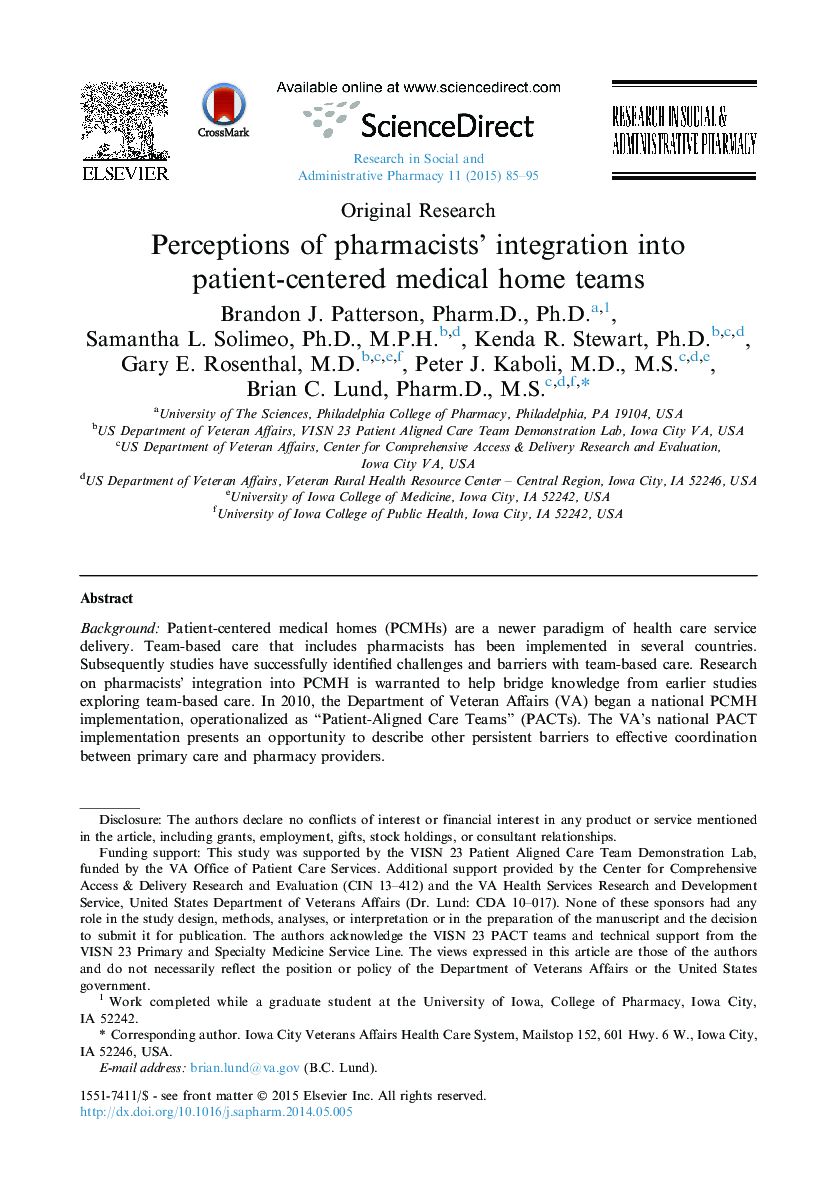| Article ID | Journal | Published Year | Pages | File Type |
|---|---|---|---|---|
| 5821526 | Research in Social and Administrative Pharmacy | 2015 | 11 Pages |
BackgroundPatient-centered medical homes (PCMHs) are a newer paradigm of health care service delivery. Team-based care that includes pharmacists has been implemented in several countries. Subsequently studies have successfully identified challenges and barriers with team-based care. Research on pharmacists' integration into PCMH is warranted to help bridge knowledge from earlier studies exploring team-based care. In 2010, the Department of Veteran Affairs (VA) began a national PCMH implementation, operationalized as “Patient-Aligned Care Teams” (PACTs). The VA's national PACT implementation presents an opportunity to describe other persistent barriers to effective coordination between primary care and pharmacy providers.ObjectiveTo identify perceived barriers and facilitators to pharmacist integration into VA PACTs from the perspective of non-pharmacist team members.MethodsSemi-structured interviews were conducted as part of a formative evaluation of PCMH implementation. Participants were from VA medical centers and community-based outpatient clinics in the Midwestern United States and included physicians, nurses, associated health care professionals, and health system administrators.ResultsIn working toward pharmacy service integration, role clarity and work activities were influenced by team member attitudes toward and previous experiences with pharmacists. Interviewees reported that coordination with pharmacists was hindered if communication placed extra burdens on other team members. Interviewees reported collaboration was easier when pharmacists were onsite, but that technology helped facilitate off-site access to pharmacy services. Finally, some team members characterized pharmacist integration as essential while others failed to integrate pharmacists at all.ConclusionNon-pharmacist members of PACT teams reported some reluctance in pharmacists' integration. They attributed this reluctance to knowledge deficits, limited participation in PACT training by pharmacists, an imbalance in effort expended for pharmacists' integration, and coordination or communication challenges. While there may be unique opportunities for pharmacists to improve patient care through participation in PCMHs, work remains to improve other health professionals' knowledge of and attitudes toward pharmacists' roles on health care teams.
